
Find Help
More Items From Ergsy search
-

Can ADHD be inherited?
Relevance: 100%
-

What is ADHD?
Relevance: 65%
-
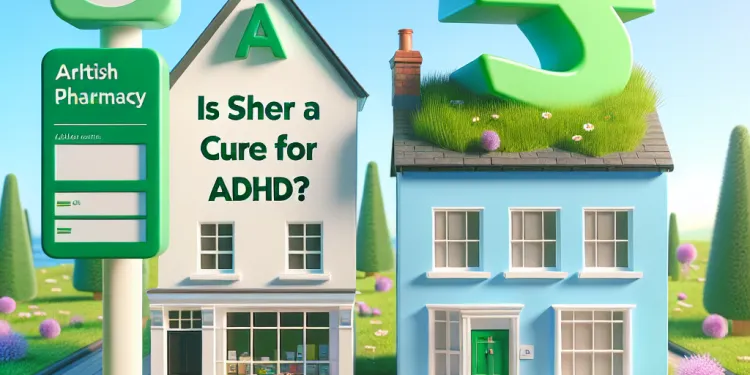
Is there a cure for ADHD?
Relevance: 62%
-
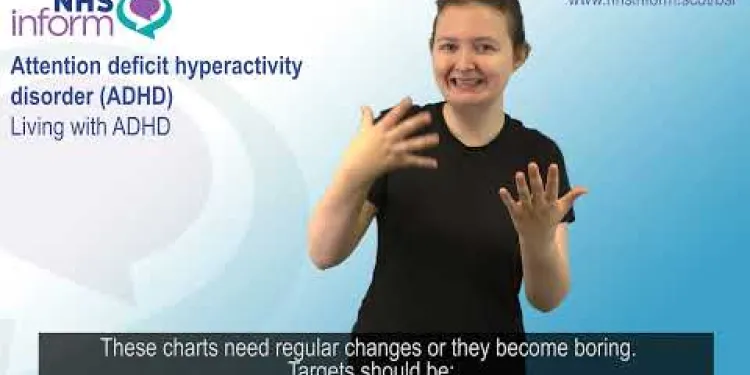
Attention deficit hyperactivity disorder (ADHD) - Living with ADHD
Relevance: 61%
-

What causes ADHD?
Relevance: 59%
-

Are there different types of ADHD?
Relevance: 59%
-

How is ADHD diagnosed?
Relevance: 58%
-
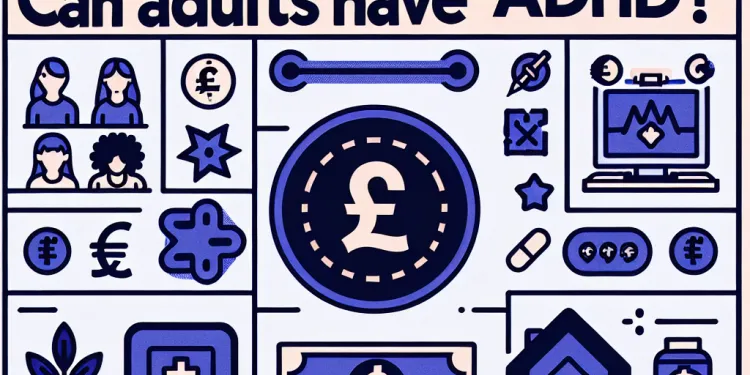
Can adults have ADHD?
Relevance: 57%
-
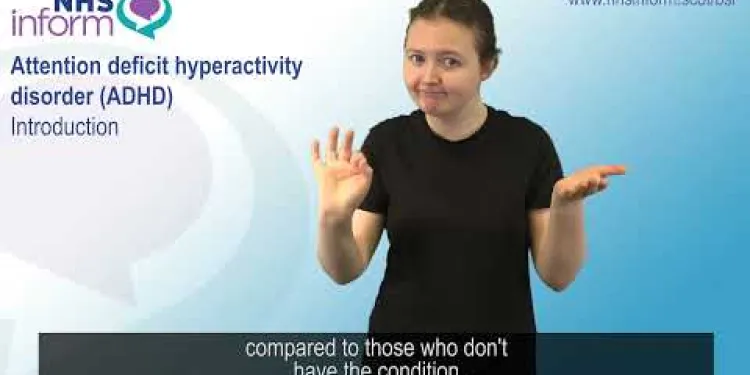
Attention deficit hyperactivity disorder (ADHD) - Introduction
Relevance: 57%
-

What are common treatments for ADHD?
Relevance: 57%
-

What are the main symptoms of ADHD?
Relevance: 56%
-
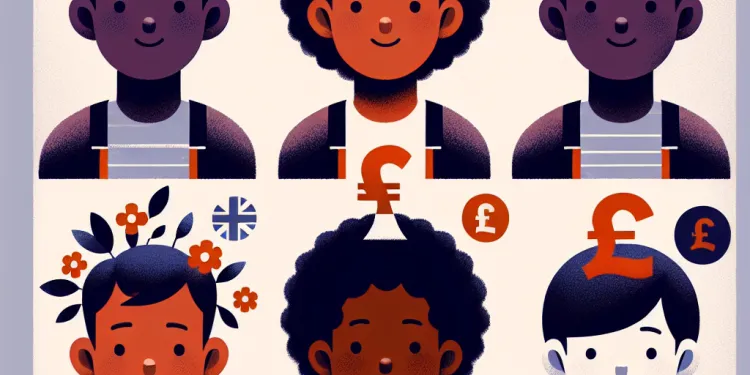
Is ADHD more common in boys or girls?
Relevance: 55%
-

Are there any risks associated with untreated ADHD?
Relevance: 55%
-

Can therapy help individuals with ADHD?
Relevance: 55%
-
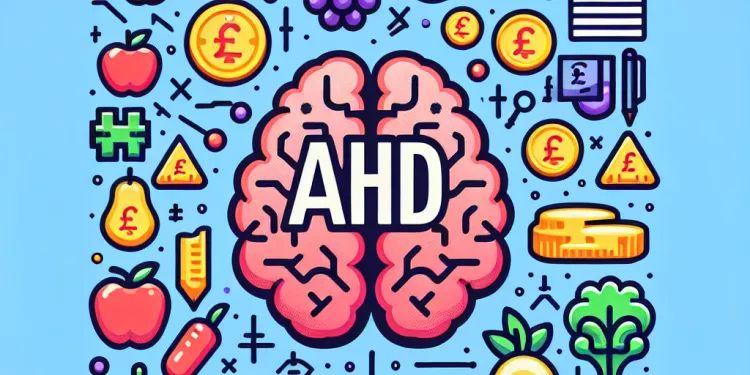
Can diet affect ADHD symptoms?
Relevance: 55%
-

How can I get tested for ADHD?
Relevance: 54%
-
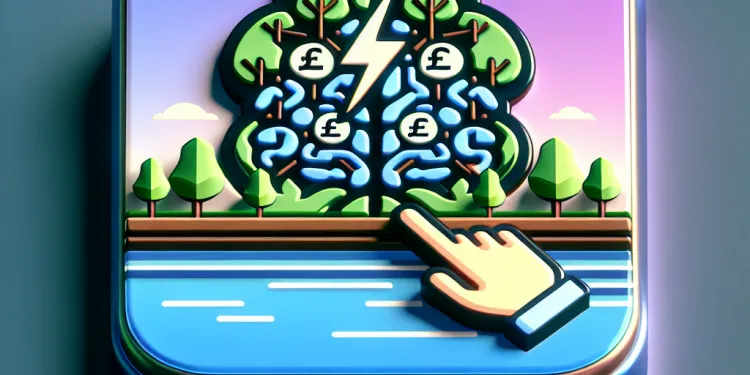
What role does the environment play in ADHD?
Relevance: 53%
-
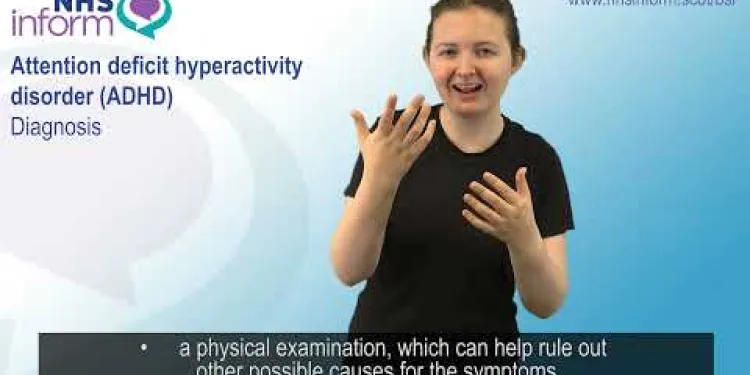
Attention deficit hyperactivity disorder (ADHD) - Diagnosis
Relevance: 53%
-

Can lifestyle changes help manage ADHD?
Relevance: 53%
-
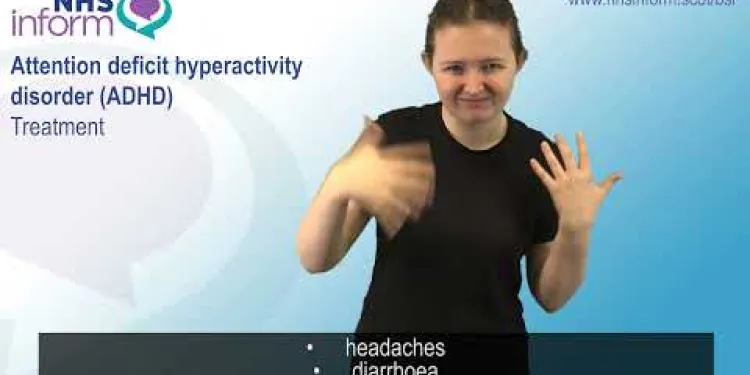
Attention deficit hyperactivity disorder (ADHD) - Treatment
Relevance: 53%
-
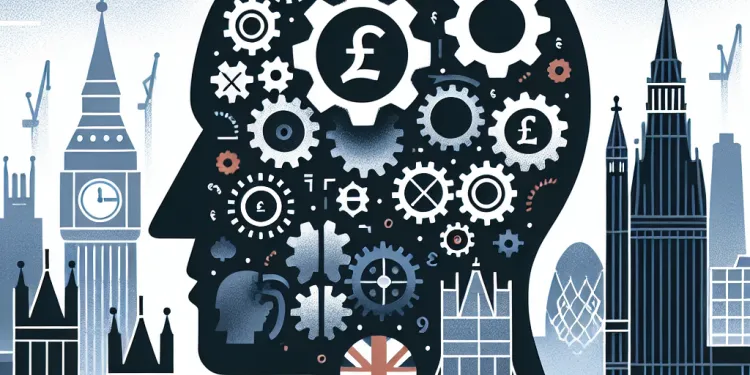
How does ADHD affect executive function?
Relevance: 53%
-
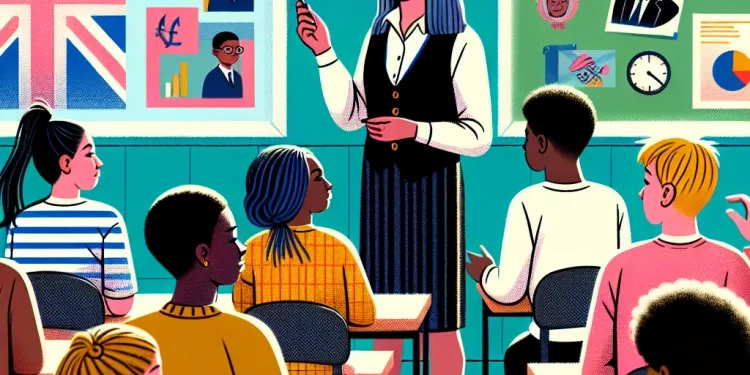
How can teachers support students with ADHD?
Relevance: 52%
-

Do I pay Inheritance Tax on a property I inherit?
Relevance: 47%
-
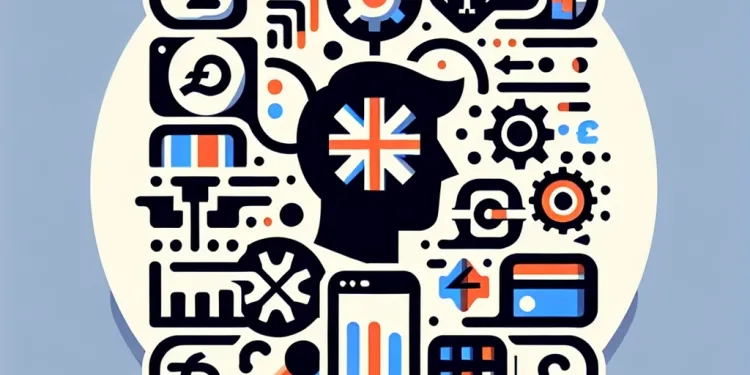
What is ADHD?
Relevance: 46%
-

What is inheritance tax?
Relevance: 45%
-

What is Inheritance Tax?
Relevance: 45%
-

What is inheritance tax in the UK?
Relevance: 45%
-

What is Inheritance Tax?
Relevance: 45%
-

What is inheritance tax in the UK?
Relevance: 44%
-

When is inheritance tax due?
Relevance: 43%
-

Who pays the inheritance tax?
Relevance: 43%
-

How is inheritance tax calculated?
Relevance: 42%
-

Are there deductions available for inheritance tax?
Relevance: 42%
-

Are there tax-free thresholds for inheritance tax?
Relevance: 42%
-

Can inheritance tax be deferred?
Relevance: 42%
-

Which countries impose inheritance tax?
Relevance: 42%
-

Who is responsible for paying Inheritance Tax?
Relevance: 41%
-

What assets are subject to inheritance tax?
Relevance: 41%
-

When is inheritance tax due to be paid?
Relevance: 41%
-

What is the process for paying inheritance tax?
Relevance: 41%
Understanding ADHD
Attention Deficit Hyperactivity Disorder (ADHD) is a neurodevelopmental condition that affects both children and adults. It is characterized by symptoms such as inattentiveness, hyperactivity, and impulsiveness. While ADHD can be diagnosed at any age, symptoms generally become noticeable early in childhood. Understanding the underlying causes of ADHD, including the role of genetic factors, can help in managing the condition effectively.
The Role of Genetics
Research has shown that ADHD can have a strong genetic component, meaning it can be inherited from family members. Studies involving twins and families have indicated that ADHD is more common in individuals who have relatives diagnosed with the condition. Genetic factors are estimated to account for approximately 70-80% of the risk of developing ADHD, highlighting the significant role played by inherited traits.
Genes Associated with ADHD
Although specific genes linked to ADHD have not been pinpointed, a number of genes that play a role in the regulation of neurotransmitters in the brain have been associated with the condition. These neurotransmitters, including dopamine and norepinephrine, are essential for attention and behavior regulation. Variations in genes affecting neurotransmitter pathways can influence ADHD symptom development.
Environmental Influences
While genetics contribute significantly to ADHD, environmental factors also play a crucial role. Prenatal risks such as maternal smoking, alcohol use during pregnancy, and premature birth have been linked to an increased risk of ADHD. Postnatal environmental factors, including exposure to lead and social influences, can also impact the likelihood of developing ADHD or exacerbate existing symptoms.
The Importance of Family History
Family history can be an important indicator when diagnosing ADHD. If a close family member, such as a parent or sibling, has been diagnosed, it may increase the probability of another family member developing the condition. Recognizing these patterns can assist healthcare professionals in making a timely and accurate diagnosis, allowing for earlier interventions.
Conclusion
In conclusion, ADHD is a complex disorder with a multifactorial origin. Genetics play a significant role in the risk of developing ADHD, but they are not the sole contributing factor. Environmental influences and individual life experiences also contribute to the manifestation and severity of the condition. Understanding the hereditary nature of ADHD can help those affected, providing insight into symptom management and potential preventative strategies. As research continues, greater clarity on genetic and environmental interactions is likely to emerge, offering hope for more targeted treatments.
What is ADHD?
ADHD stands for Attention Deficit Hyperactivity Disorder. It is a condition that can make it hard to pay attention, stay still, and control impulses. Both kids and grown-ups can have ADHD. You might notice these signs early when someone is a child. Knowing why ADHD happens, like if it runs in families, can help take care of it better.
Does ADHD Run in Families?
Yes, ADHD can be passed down from parents to kids. This means if your mom or dad has ADHD, you might have it too. Studies with twins and families show that ADHD is more likely in people who have family members with the condition. About 70-80 out of 100 chances of getting ADHD come from your genes.
Genes and ADHD
We don’t know the exact genes that cause ADHD yet. But some genes help control chemicals in our brain, like dopamine, which help us pay attention and act properly. Changes in these genes can lead to ADHD symptoms.
Other Things That Can Cause ADHD
Genes are not the only reason for ADHD. Things like a mom smoking or drinking alcohol when pregnant can raise the chances. Being born too early can also add to the risk. After birth, things like being around lead or having certain social experiences can make ADHD worse.
Why Knowing Family History Matters
Knowing your family history can be helpful for finding out if you have ADHD. If someone in your family, like a parent or sister, has ADHD, you might need to keep an eye out for signs. Doctors can use this information to help make an early diagnosis so you can get help sooner.
Summing It Up
ADHD is a condition that comes from many places. Your genes play a big part, but they're not the only reason. Things around you and your life experiences also affect ADHD. Understanding your family history can help you deal with it and find ways to feel better. As time goes on, we might learn more about how genes and environment work together to cause ADHD. This could mean better treatments in the future.
Frequently Asked Questions
What is ADHD?
ADHD stands for Attention-Deficit/Hyperactivity Disorder, a neurodevelopmental disorder that affects attention, impulse control, and activity levels.
Can ADHD be inherited?
Yes, ADHD can have a genetic component, meaning it can be inherited from parents.
What is the likelihood of inheriting ADHD if a parent has it?
If a parent has ADHD, a child has about a 50% chance of inheriting the condition.
Is ADHD more likely to be inherited from the mother or father?
ADHD can be inherited from either parent, and there is no definitive evidence to suggest it is more likely from one over the other.
Can siblings both have ADHD?
Yes, siblings can both have ADHD, especially if there is a family history of the condition.
What genes are associated with ADHD?
Research has identified several genes that may be linked to ADHD, particularly those involved in dopamine regulation.
Are environmental factors also involved in ADHD?
Yes, environmental factors such as prenatal exposures and early childhood experiences can also contribute to the development of ADHD.
Can lifestyle changes reduce the chances of passing ADHD to children?
While lifestyle changes may improve symptoms, they do not alter genetic inheritance.
Can ADHD skip a generation?
It's possible for ADHD to appear to skip a generation if it is not diagnosed or if symptoms are mild in one generation.
Is ADHD more common in boys or girls?
ADHD is diagnosed more frequently in boys, but it also affects girls, often with different symptom profiles.
Can ADHD be inherited if no one else in the family has it?
It is possible for ADHD to occur without a known family history, suggesting a combination of genetic and environmental factors.
What are common symptoms of ADHD?
Symptoms of ADHD include inattention, hyperactivity, and impulsivity.
Can ADHD develop in adulthood?
ADHD typically begins in childhood, but it can be diagnosed in adults if symptoms were present, even if unrecognized, during childhood.
How is ADHD diagnosed?
ADHD is diagnosed through a comprehensive evaluation that includes medical exams, interviews, and behavioral assessments.
Can ADHD symptoms change over time?
Yes, ADHD symptoms can change over time, with hyperactivity often decreasing in adulthood while attentional issues may persist.
Is there a cure for ADHD?
There is no cure for ADHD, but there are effective treatments available, including medication, therapy, and lifestyle changes.
Can ADHD run in families?
Yes, ADHD can run in families, indicating a hereditary component to the disorder.
Can ADHD be misdiagnosed?
Yes, ADHD can be misdiagnosed because its symptoms can overlap with other conditions like anxiety and learning disorders.
What treatments are available for ADHD?
Treatments for ADHD include stimulant and non-stimulant medications, behavioral therapy, and lifestyle changes like exercise and diet.
What role does dopamine play in ADHD?
Dopamine is a neurotransmitter involved in attention and reward pathways, and dysregulation in dopamine systems is thought to contribute to ADHD symptoms.
What is ADHD?
ADHD means Attention Deficit Hyperactivity Disorder. It is a condition that makes it hard for people to stay focused, sit still, and stop themselves from doing something quickly without thinking.
Here are some tips to help:
- Use a timer to help with focus.
- Take short breaks often.
- Have a quiet place to work.
- Use pictures or colors to remember things.
ADHD means Attention-Deficit/Hyperactivity Disorder. It is a brain condition that makes it hard to pay attention, control actions, and sit still.
Can you get ADHD from your parents?
People can sometimes get ADHD from their family. This means if a parent has ADHD, their child might have it too.
To understand more about ADHD, you can:
- Talk to a doctor or nurse.
- Read a simple book about ADHD.
- Watch videos made for kids about ADHD.
Yes, ADHD can run in families. This means you can get it from your parents.
How likely is a child to have ADHD if their parent has it?
If a parent has ADHD, their child might have it too.
Here are some things that can help understand ADHD:
- Talk to a doctor.
- Read books for kids about ADHD.
- Use apps or videos that explain ADHD in simple ways.
Always ask for help if you have questions!
If a mom or dad has ADHD, a child has a chance of about half (50%) to also have ADHD.
Does ADHD come from the mom or dad?
ADHD is something that can run in families. This means it can come from your mom or dad.
To find out more, you could:
- Talk to a doctor or nurse. They know a lot about ADHD.
- Read books or websites made for kids. These can help explain things.
ADHD can come from mom or dad. We don't know if it comes more from one than the other.
Can brothers and sisters both have ADHD?
Yes, it is possible for brothers and sisters to both have ADHD. ADHD can run in families. This means if one person has ADHD, their brother or sister might have it too.
If you or your family have questions about ADHD, talking to a doctor can help. Using tools like simple checklists and charts can also make it easier to understand ADHD.
Yes, brothers and sisters can both have ADHD. This can happen more if others in the family have had ADHD too.
What genes are connected to ADHD?
Scientists have found some genes that might be connected to ADHD. These genes help control how the brain uses a chemical called dopamine.
Does the environment affect ADHD?
ADHD can be influenced by the environment. This means things around us might play a part in ADHD.
Here are some helpful tools and tips:
- Checklists: Use checklists to remember tasks.
- Visuals: Use pictures to explain things.
- Quiet Spaces: Find a quiet place to help focus.
If you need more help, talk to an adult you trust or a doctor.
Yes, things around us can affect ADHD. This can happen before a baby is born or when they are very young.
Can changing how we live help stop ADHD in kids?
ADHD is a problem some people have that makes it hard to sit still or pay attention. Parents might worry if their kids will have it too.
There are ways parents can help. Eating healthy food, playing, and sleeping well are good for everyone. Talking to a doctor is also a good idea.
These things can make everyone feel better, but they might not stop ADHD. Every child is different.
Changing how you live can help you feel better. But it won't change the genes you get from your parents.
Can ADHD skip a generation?
ADHD is a condition that makes it hard to focus or stay still. Sometimes, ADHD can run in families. This means parents can pass it on to their children.
But can ADHD skip a generation? This means a grandparent has ADHD, but their child does not, and then their grandchild does have it.
Yes, ADHD can skip a generation. It might not show up in every family member.
If you want to learn more or need help, talk to a doctor. They can explain ADHD and answer questions. You can also ask for support from a therapist or counselor.
Using apps or audiobooks on a phone or tablet can also be helpful tools for learning more about ADHD.
ADHD might seem like it skips a generation if it is not noticed or if the signs are not strong in parents.
Who has ADHD more often: boys or girls?
ADHD is found more often in boys. But girls can have it too. Sometimes, it looks different in girls.
Can You Get ADHD If No One in Your Family Has It?
Yes, it is possible to have ADHD even if no one else in your family does.
ADHD can sometimes be passed down from parents, but not always. It can still happen on its own.
If you think you or someone you know might have ADHD, talk to a doctor. They can help and tell you more.
Using pictures or talking about ADHD with friends can also help you understand it better.
Sometimes, ADHD can happen even if no one else in your family has it. This means it might be because of both genes and things around us.
What are the signs of ADHD?
ADHD is when it's hard to pay attention, sit still, or control impulses. Here are some things people might do:
- Find it hard to focus or listen.
- Forget things a lot.
- Move around a lot, like fidgeting or not sitting still.
- Talk a lot and interrupt others.
- Not wait for their turn.
Using a calendar, breaking tasks into small steps, or setting reminders can help.
People with ADHD can find it hard to pay attention. They might be very active and do things without thinking.
Can you get ADHD when you are grown up?
ADHD is a condition that makes it hard to pay attention or sit still. Some people think only kids can have ADHD, but grown-ups can have it too.
If you find it hard to focus or stay still, you can ask a doctor for help. They can tell you if you have ADHD. There are tools and tips that can help, like:
- Making a list of things to do.
- Setting reminders to help you remember things.
- Talking to a teacher or helper about how to make things easier.
Remember, it's okay to ask for help!
ADHD usually starts when you are a child. But doctors can find it in adults too, if it was there when they were kids, even if no one noticed it back then.
How do doctors find out if someone has ADHD?
Doctors check if someone has ADHD by talking to them and their family.
They look at how the person pays attention and behaves.
Doctors might ask questions and use special papers to help decide.
Using pictures and stories can help understand ADHD better.
Doctors find out if someone has ADHD by doing a full check-up. This includes looking at their health, talking to them, and seeing how they act.
Do ADHD signs change as you get older?
Yes, ADHD signs can change. Some signs might get better or go away. Others might stay the same or become harder. It helps to talk to a doctor about it.
Here are some ways to get help:
- See a doctor or therapist. They can give advice.
- Try using a planner or timer. It can help you stay on track.
- Ask for help from friends or family.
Yes, ADHD can look different as you get older. As you grow up, being very active might get less, but having trouble paying attention might still be there.
Can ADHD be fixed?
ADHD stands for Attention-Deficit/Hyperactivity Disorder. It affects how people pay attention, stay still, and control their actions.
There is no cure for ADHD, but there are ways to help manage it. Doctors may give medicine to help. Talking to a therapist can also help. Families and teachers can make plans to help too.
Some tools that might help are:
- Using timers to keep track of time.
- Making a clear daily schedule.
- Taking breaks when working or playing.
- Practicing mindfulness or deep breathing.
With the right help, people with ADHD can do well in school and at home.
We can't make ADHD go away forever, but there are ways to help. Medicine, talking to someone, and changing some things you do every day can make a difference.
Can ADHD be passed down in families?
Yes, ADHD can run in families. It means that if someone in your family has ADHD, you might have it too. Scientists think it can be passed down from parents to children.
If you want to learn more or need help, you can:
- Talk to a doctor.
- Ask your teacher or school counselor for help.
- Read books or watch videos about ADHD.
Yes, ADHD can run in families. This means if someone in your family has ADHD, you might have it too. It's something that can be passed down like eye color or hair color.
Can doctors make a mistake with ADHD?
Doctors may sometimes get it wrong when they say someone has ADHD. This means they might think a person has ADHD when they don't. Other things can look like ADHD, so it can be tricky.
If you want help to understand, ask a teacher or parent. They can help explain. You can also use apps that read aloud if you find it hard to read.
Yes, sometimes doctors make mistakes when saying someone has ADHD. This is because ADHD looks like other things, such as being worried a lot (anxiety) or having trouble learning.
What treatments can help with ADHD?
People with ADHD can try different ways to feel better.
- Doctors might give you medicine to help your brain focus.
- Talking to a counselor can help you understand your feelings.
- Parents and teachers can help by giving clear instructions.
- A planner or calendar can help keep track of tasks.
- Exercising and eating healthy foods are also good for your brain.
Ask your doctor what is best for you. Remember, everyone is different.
There are ways to help people with ADHD. Doctors can give them special medicines. Some of these medicines make your body more active, and some do not. Talking to a therapist can help too. Also, doing exercise and eating healthy food can make a big difference.
What does dopamine do in ADHD?
Dopamine is a chemical in the brain.
In ADHD, dopamine might not work the same way.
This can make it hard to focus or pay attention.
A few tips can help:
- Use simple checklists to remember tasks.
- Take breaks when doing homework or chores.
- Try using a timer to stay on track.
Dopamine is a chemical in the brain. It helps us pay attention and feel good when we do something nice. Sometimes, dopamine doesn't work right. This can make it hard to pay attention, like in ADHD.
Useful Links
This website offers general information and is not a substitute for professional advice.
Always seek guidance from qualified professionals.
If you have any medical concerns or need urgent help, contact a healthcare professional or emergency services immediately.
Some of this content was generated with AI assistance. We’ve done our best to keep it accurate, helpful, and human-friendly.
- Ergsy carfully checks the information in the videos we provide here.
- Videos shown by Youtube after a video has completed, have NOT been reviewed by ERGSY.
- To view, click the arrow in centre of video.
- Most of the videos you find here will have subtitles and/or closed captions available.
- You may need to turn these on, and choose your preferred language.
- Go to the video you'd like to watch.
- If closed captions (CC) are available, settings will be visible on the bottom right of the video player.
- To turn on Captions, click settings .
- To turn off Captions, click settings again.
More Items From Ergsy search
-

Can ADHD be inherited?
Relevance: 100%
-

What is ADHD?
Relevance: 65%
-

Is there a cure for ADHD?
Relevance: 62%
-

Attention deficit hyperactivity disorder (ADHD) - Living with ADHD
Relevance: 61%
-

What causes ADHD?
Relevance: 59%
-

Are there different types of ADHD?
Relevance: 59%
-

How is ADHD diagnosed?
Relevance: 58%
-

Can adults have ADHD?
Relevance: 57%
-

Attention deficit hyperactivity disorder (ADHD) - Introduction
Relevance: 57%
-

What are common treatments for ADHD?
Relevance: 57%
-

What are the main symptoms of ADHD?
Relevance: 56%
-

Is ADHD more common in boys or girls?
Relevance: 55%
-

Are there any risks associated with untreated ADHD?
Relevance: 55%
-

Can therapy help individuals with ADHD?
Relevance: 55%
-

Can diet affect ADHD symptoms?
Relevance: 55%
-

How can I get tested for ADHD?
Relevance: 54%
-

What role does the environment play in ADHD?
Relevance: 53%
-

Attention deficit hyperactivity disorder (ADHD) - Diagnosis
Relevance: 53%
-

Can lifestyle changes help manage ADHD?
Relevance: 53%
-

Attention deficit hyperactivity disorder (ADHD) - Treatment
Relevance: 53%
-

How does ADHD affect executive function?
Relevance: 53%
-

How can teachers support students with ADHD?
Relevance: 52%
-

Do I pay Inheritance Tax on a property I inherit?
Relevance: 47%
-

What is ADHD?
Relevance: 46%
-

What is inheritance tax?
Relevance: 45%
-

What is Inheritance Tax?
Relevance: 45%
-

What is inheritance tax in the UK?
Relevance: 45%
-

What is Inheritance Tax?
Relevance: 45%
-

What is inheritance tax in the UK?
Relevance: 44%
-

When is inheritance tax due?
Relevance: 43%
-

Who pays the inheritance tax?
Relevance: 43%
-

How is inheritance tax calculated?
Relevance: 42%
-

Are there deductions available for inheritance tax?
Relevance: 42%
-

Are there tax-free thresholds for inheritance tax?
Relevance: 42%
-

Can inheritance tax be deferred?
Relevance: 42%
-

Which countries impose inheritance tax?
Relevance: 42%
-

Who is responsible for paying Inheritance Tax?
Relevance: 41%
-

What assets are subject to inheritance tax?
Relevance: 41%
-

When is inheritance tax due to be paid?
Relevance: 41%
-

What is the process for paying inheritance tax?
Relevance: 41%


